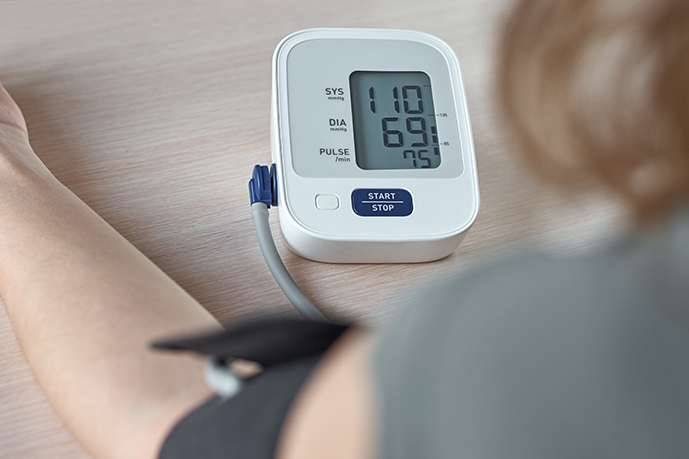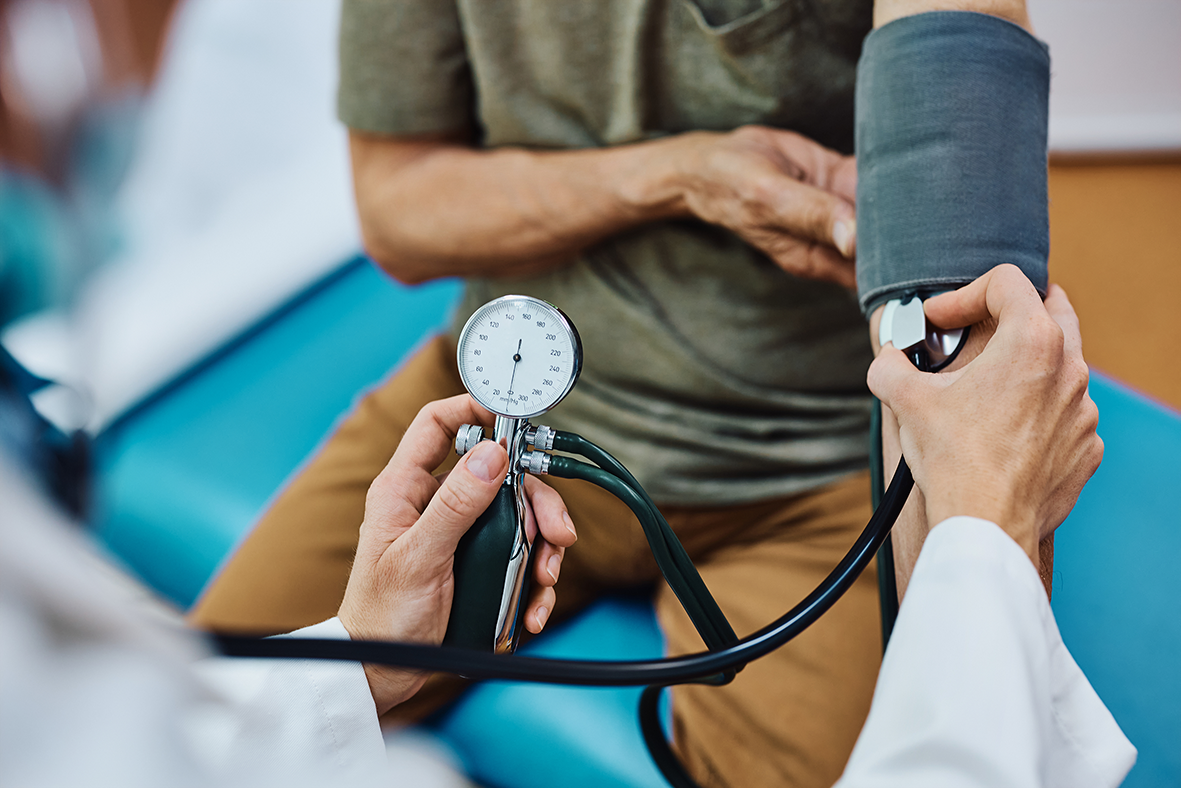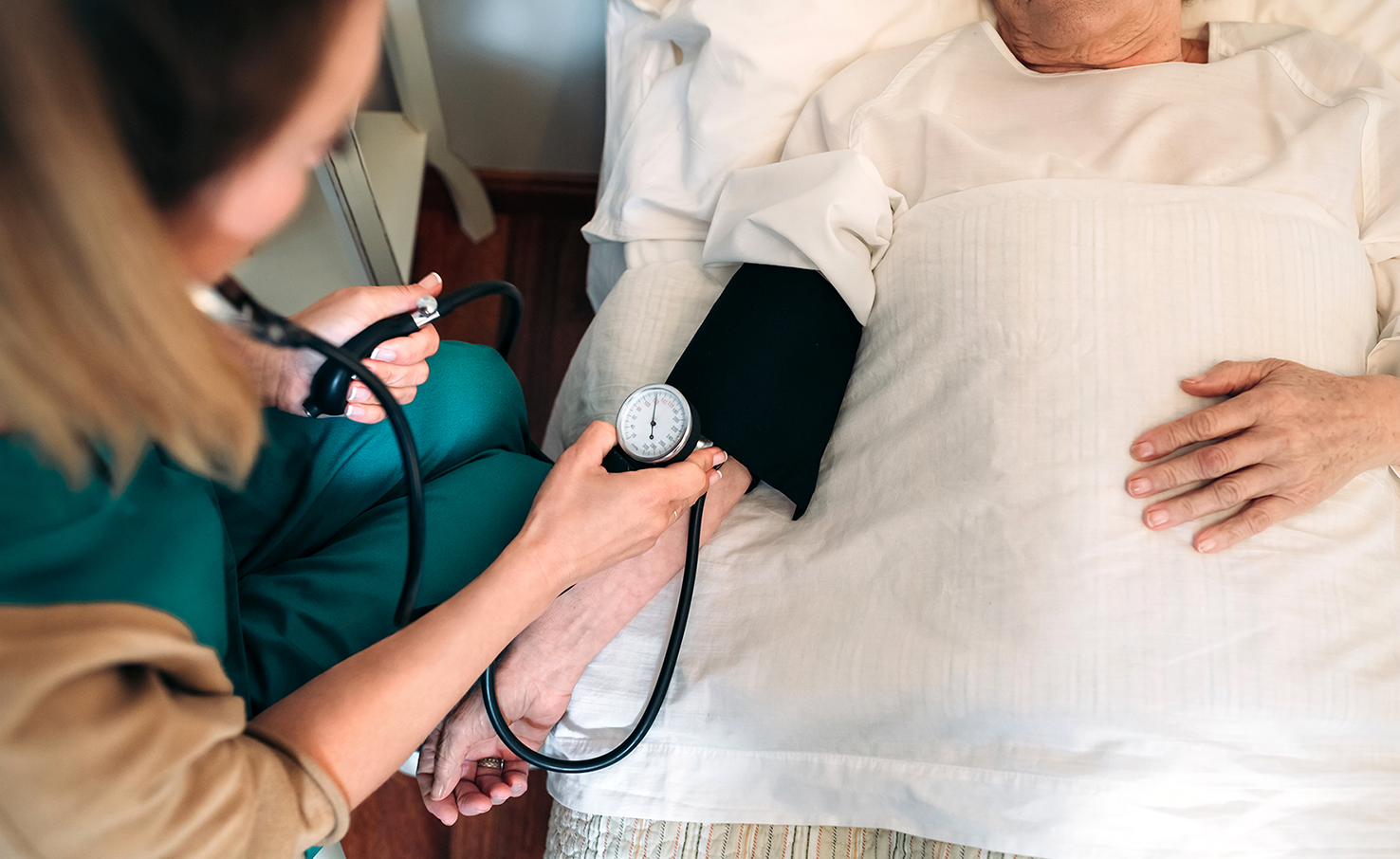Blood pressure
Blood pressure is the pressure in a person's blood vessels. This pressure is necessary to pump blood around the body. This is necessary because your muscles and organs are then supplied with sufficient oxygen. Blood pressure (also called tension) may be higher or lower than normal. Normal blood pressure is the same depending on age. To know whether your blood pressure is OK, it is good to see which values are important. The correct blood pressure values have been determined by the World Health Organization (WHO). They investigated what the average values are for all ages.
Natural Solutions for High Blood Pressure: The Healing Power of Herbs.
“Discover how herbs like garlic, turmeric and hibiscus can help lower your blood pressure in
17 April 2024
Lowering blood pressure? Know what you’re eating!
“Find out which blood pressure-lowering foods help to keep your body healthy” The nu
17 April 2024
Understanding Low Blood Pressure: Symptoms, Causes, and Risks
Low blood pressure, also known as hypotension, is a condition characterised by abnormally low blood
3 January 2024
Understanding Blood Pressure: What is Normal Blood Pressure and How to Maintain It
High blood pressure is a common health condition that affects millions of people worldwide. It is a
27 December 2023
Blood pressure
A healthy blood pressure is below 140/90. These blood pressure values also apply to the elderly. All values above that are therefore on the high side, regardless of how old you are. As we get older, blood pressure will increase slightly. After our sixtieth birthday, hypertension (too high blood pressure) can develop more often.
Upper pressure and negative pressure
Tension can always be expressed in two numbers. The first number refers to the upper pressure. This is also called systolic pressure. The second number contains the oppression. This is called diastolic pressure. The measurement of the upper pressure takes place when the heart contracts. Then there is the highest pressure. When relaxing, the negative pressure is measured. Then the tension is the lowest.
Normal values of tension
A tension lower than 140 is normal. The risk of vascular and heart disease will increase when blood pressure is on the rising side. People with high blood pressure are wise to have it measured regularly. This way you can take immediate action if the values are too high.
With a value of 140/190 it is wise to adjust the measure blood pressure for a week. You should do this in the morning and evening hours. Does the tension remain too high? Then it is advisable to contact your GP. If the values are above 180/100, it is advisable to contact your doctor immediately.
Fluctuating blood pressure
It is human nature for blood pressure to fluctuate. The values depend on all kinds of factors. Consider, for example, nutrition, time and whether you exercise enough. Blood pressure values can differ at certain times. It is therefore important to measure at multiple times. Medicines can also influence the values.
When do you have high blood pressure?
Of course you want to know when is due to high blood pressure. It is good to know that hypertension is not a disease. It does increase the risk of problems with cardiovascular disease. In many situations you do not notice that there is a high tension. That is why it is recommended to have measurements carried out on a regular basis. Symptoms may occur with long-term or severe hypertension. If you experience this, you are requested to contact your own GP. Symptoms of high blood pressure may include:
- Feeling nauseous and/or vomiting.
- Having a headache.
- A lot be tired.
- Blurred vision.
- Experiencing a restless feeling.
- Being short of breath.
Causes of hypertension
Do you suffer from hypertension? Then it is interesting to know whether there is a cause for this. The exact causes of people with high blood pressure are usually not completely clear. This applies to 9 out of 10 people. We do know which things can have a negative impact on blood pressure. We list these things for you below:
- Genetic influence.
- Little exercise (inactivity)
- Not eating healthy (for example too much saturated fat or salt).
- Being overweight.
- Consuming a lot of alcohol and/or smoking.
What to do if you have high blood pressure?
Is your blood pressure too high? In other words, do you experience discomfort due to hypertension? Then we have some useful tips for you. This advice is often also given by the GP. Doctors also sometimes choose to prescribe medications to lower blood pressure. This is what you can do yourself:
- Try to quit smoking.
- It is important to exercise at least 30 minutes a day.
- Make sure you eat a varied and healthy diet.
- Limit your salt intake to a minimum.
- Are you overweight? Then try to lose weight.
- It is important to reduce stress and tension.
When is blood pressure too low?
There is too low blood pressure (hypotension) when it is below normal values. It may be the case that hypotension does not cause any problems. However, it can also cause unpleasant complaints.
Complaints of hypotension
Having hypotension can have a number of consequences . If you suffer from these complaints, it is advisable to contact your doctor. These are, for example, symptoms of low blood pressure:
- No longer seeing clearly, but blurred.
- Suffering from fatigue.< /span>
- Being dizzy.
What to do about low blood pressure
What to do if your blood pressure is too low. If your blood pressure is too low, it is often not necessary to undergo treatment. You may be confronted with unpleasant complaints. It is then important to deal with this in a good manner.
- Do you have the feeling that every moment will you faint? Then sit quietly and place your head between both knees. It is then easier for the blood to flow to your brain.
- Are you feeling a little light-headed? Don’t get up too quickly, but calmly.
- Drinking water is extremely important. Make sure you get enough fluid during the day. Especially when you are exercising or in warm weather.
- If you vomit or have diarrhea, you should drink enough. Your blood pressure can drop if you lose a lot of fluid. That’s not something you want.
It may be wise to measure your blood pressure yourself. This can be done, for example, with a wrist blood pressure monitor and upper arm blood pressure monitor. Take the measurements at different times during the day. If you take blood pressure lowering medication, it is important to perform the measurement before taking your medication. The machet of the blood pressure monitor must be placed tightly around the arm. Do not start working if you have just finished exercising or made some other effort. No moving or talking is allowed during measurements.



